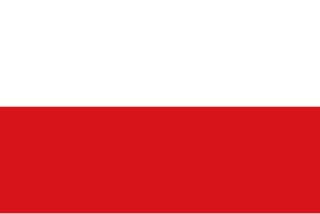Mathesius is a Czech surname. Notable people with the surname include:
The Czechs or the Czech people, are a West Slavic ethnic group and a nation native to the Czech Republic in Central Europe, who share a common ancestry, culture, history, and Czech language.
- Bohumil Mathesius (1888–1952), Czech poet, translator, publicist and literary scientist
- Frederick Mathesius, an American architect
- Johannes Mathesius (1504–1565), German-Bohemian minister and Lutheran reformer
- Johannes Mathesius, the Younger (1544, Jáchymov – 1607), Bohemian-German physician [1]
- Paul Mathesius (1548, Jáchymov – 1584), Bohemian-German Lutheran theologian [2]

Jáchymov, until 1945 known by its German name of Sankt Joachimsthal or Joachimsthal is a spa town in the Karlovy Vary Region of Bohemia, now part of the Czech Republic. It is situated at an altitude of 733 m (2,405 ft) above sea level in the eponymous St. Joachim's valley in the Ore Mountains, close to the Czech border with Germany.
- Vilém Mathesius (1882–1945), Czech linguist
Bohumil Mathesius was a Czech poet, translator, publicist and literary scientist – expert on Russian literature. He was a professor at the Faculty of Arts of the Charles University in Prague. His cousin was Vilém Mathesius.
Frederick Mathesius was an American architect who was partnered with Charles Alonzo Rich at the firm Rich, Mathesius and Koyl, until Rich retired in 1932. After the firm broke up Mathesius continued practicing architecture; he worked with the firm that won the 1939 contest for the design of the U.S. Post Office in Montpelier, Vermont.

Johannes Mathesius, also called Johann Mathesius or John Mathesius, was a German minister and a Lutheran reformer. He is best known for his compilation of Martin Luther's Table Talk, or notes taken of Luther's conversation and published afterwards. He rivaled Anton Lauterbach in his diligence in notetaking, and surpassed him in the discrimination with which he arranged it.
Mathesius is also a surname of a Finnish family and may refer to:
Finns or Finnish people are a Finnic ethnic group native to Finland.
- Johan Mathesius (1709–1765), pastor and politician of the Caps party
- Per Niklas Mathesius (1711–1772), pastor and politician of the Caps party, brother of Johan Mathesius
The Caps were a political faction during the Age of Liberty (1719–1772) in Sweden. The primary rivals of the Caps were known as the Hats. The Hats are actually responsible for the Caps' name, as it comes from a contraction of Night-cap, a name used to suggest that the Caps were the soft and timid party. The Caps represented mostly peasants and clergymen.








